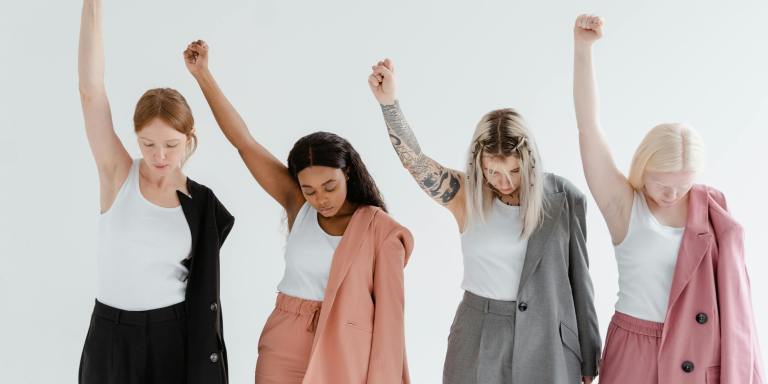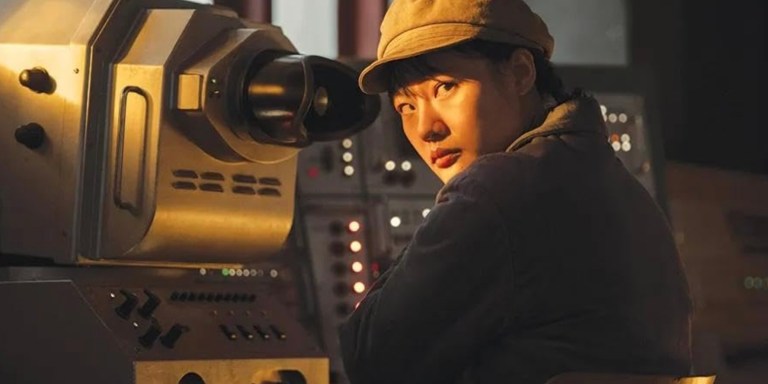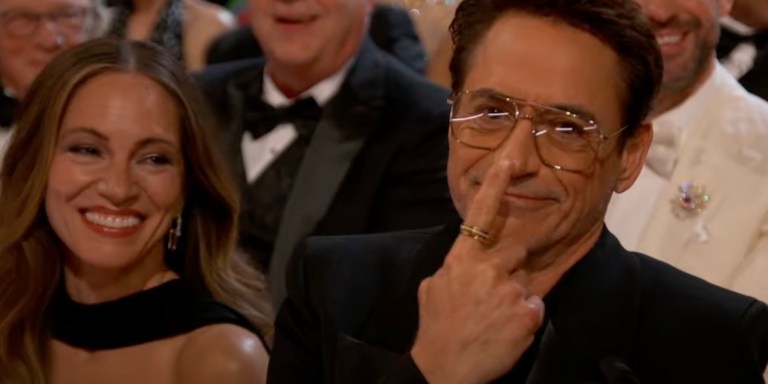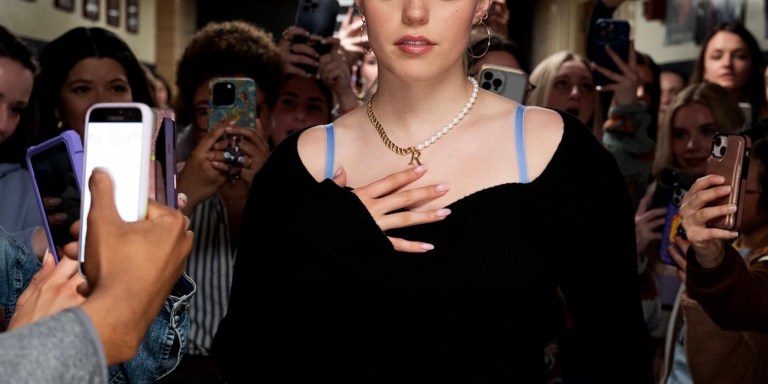“Feminism is becoming an antiquated term for a new awareness of human identity.”

I’m a feminist. I believe in gender equality; freedom of choice, equal pay, and reproductive rights for women. I also know that while great steps have been made in our global awareness of the matter and in lessening the gap, gender inequality (and subsequent sexual exploitation, harassment, and even violence) remains a pertinent issue in our world today. I stress ‘world’ and not ‘society’ as this is a global matter. Unfortunately, however, the mere semantics of ‘feminism’ can be problematic. It seems to have become a polarizing term, and therefore often falls short in its ultimate mission: gender equality. And as actress Emma Watson so rightly pointed out in her prolific UN speech last month, this mission concerns men just as much as it concerns women. “We need everyone to be involved” she said. Yet even alleged ‘feminists’ can often get their wires crossed. For instance, Beyonce is a vocal feminist and yet she seems to appeal to the male gaze at any chance she can get. So what is feminism today anyway?
Whilst some people may find the idea of feminism a redundant one, personally, I feel that this is a very exciting time in the gender equality movement.
By definition, the term feminism means the advocacy of women’s rights on the grounds of political, social, and economic equality to men. Although it may be obvious, to give some context, the term (and movement) originated in the 19th century in France (feminisme). More recently, the second wave feminist movement, which began in the early 1960’s in the US—ignited by Betty Friedan’s The Feminine Mystique and President John F. Kennedy‘s Presidential Commission on the Status of Women—was a reaction to the post-war domesticity of women.
Certainly, the movement experienced some success with such legal victories as the Equal Pay Act of 1963, Title VII of the Civil Rights Act of 1964, and the Griswold v. Connecticut Supreme Court ruling of 1965. And yet as it remains, today women are still paid 23% less than men for the same work, many women world wide continue to be challenged about or are simply denied their reproductive rights, and 1 in 5 women are sexually assaulted in gender based violence.
So the feminist movement, that is to say, the movement towards gender equality, is still alive and fighting strong.
Sadly though, the term ‘feminism’ seems to isolate too many men. Generally speaking, even liberal minded, educated, and relatively evolved men (men who otherwise share in the feminist ideology of gender equality) can momentarily cringe at the mere mention of it. As one of my close male friends pointed out to me yesterday, “‘feminism’ seems to carry with it the sentiment of ‘anti-men’, ‘man hating’ or that ‘men aren’t included’.” Watson’s ‘HeForShe’ speech finally addressed this stigma, and with bravery and poise, she spoke to men. A self proclaimed feminist, in her urgent call to end gender inequality, Watson said, “I am reaching out to you because I need your help.” This speech was pivotal because for the first time in the history of the feminist movement, men were actively invited to participate. In fact, as she pointed out, gender equality cannot be achieved without the engagement and participation of men. “If men don’t have to be aggressive in order to be accepted, women won’t feel compelled to be submissive. If men don’t have to control, women won’t have to be controlled.” She went even further by attesting that gender inequality doesn’t actually advantage men, it hurts them. For instance, as a result of societal stigmas and a culture of ‘macho-ism’, men are less inclined to express their vulnerabilities and emotional landscape. And because of this societal denial of male fragilty, men are left feeling ashamed when faced with mental illness or a failure to reach a certain level of expected ‘success’. Watson proposed that “both men and women should feel free to be sensitive. Both men and women should feel free to be strong… It is time that we all perceive gender on a spectrum not as two opposing sets of ideals.”
For some time, at least in my experience, ‘feminism’ felt relatively taboo in popular culture. Like it was a word we were no longer supposed to adopt; like we shouldn’t complain because for the most part we women have it pretty good—even though, as Watson pointed out, “if we do nothing it will take 75 years, or for me to be nearly a hundred before women can expect to be paid the same as men for the same work. 15.5 million girls will be married in the next 16 years as children. And at current rates it won’t be until 2086 before all rural African girls will be able to receive a secondary education.”
And then, in May of this year, motivated by a hatred of women, Elliot Rodger murdered 6 innocent people. This brutal hate crime ignited women and men across the globe and consequently opened up an impassioned and LOUD online discussion about gender inequality accompanied by the hashtag #YesAllWomen. Like a sort of a renaissance in the global voice of women and equality in general that had for too long been repressed in popular culture, feminism, it felt, had at last been put back on the pop-culture agenda with a big fat trending #YesAllWomen.
In the last few years, in as far as pop-culture is concerned, TV has carried the enlightened gender equality baton. For the first time ever, real woman—all colors, all bodies, shapes and sizes, all emotions (the good, the bad and the ugly), and all sexual orientations were being portrayed (and still are) on the silver screen for the world to see. Girls and Orange is the New Black, both series created by women, have been the torch bearers of such bravery.
At The New School for Liberal Arts in New York earlier this month, trailblazing transgender actress Laverne Cox (Orange is the New Black) and prolific feminist author and social activist Bell Hooks (Ain’t I a Woman: Black Women and Feminism, All About Love: New Visions) engaged in a fervent and frank dialogue about gender equality. In as far as where feminism stands today, this public discussion pretty well embodied the contemporary feminist zeitgeist. Cox’s take on feminism is about the celebration and inclusion of the many kinds of expressions of womanhood and femininity. “It’s important that we don’t demonize the woman who is in high-heels and that we don’t demonize the woman who is out of high-heels” she said. And while Hooks remained adamant that she wouldn’t be caught dead in a pair of high heels, she acknowledged the relevance of women such as Cox and Beyonce—both successful black women who choose to wear blonde wigs and high heels—working within the framework of an “imperialist, white supremacist, capitalist patriarchy.” Yet in response to Cox’s assertion that one person is not more feminist than another, Hooks retorted, “But if feminism is all things to all people, then what is it?” She urged that “radical openness requires discernment,” and continued, “Like my student might say, “I’m anti-abortion but I’m a feminist.” And I’ll say, “But that isn’t possible. There’s no one who’s genuinely a feminist who doesn’t support reproductive rights for women.” A fervent contemporary feminist dialogue indeed!
I opened this article with a quote from my 28 year-old male friend, Zach, and I feel it fitting to close with the same one: “Feminism is becoming an antiquated term for a new awareness of human identity.” In a holistic sense, is it that in our collective struggle to end gender inequality (or to achieve gender equality), which includes the various waves of feminism, we have finally reached a threshold that transcends polarity and separateness and rather asks for an expansion of human consciousness? I know contemporary spiritualist and author of The Power of Now, A New earth, and Stillness Speaks Eckhart Tolle would say “yes”, and I’m almost certain that he’s never once adopted the word “feminism”. And yet again, for what it’s worth, these apprehensions to embrace the ‘word’ are coming from men. That being said, I’m still a feminist. ![]()





